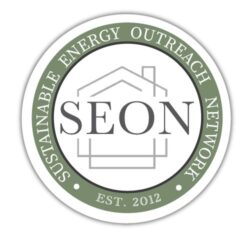Vermont Public Infrastructure Financing: Implications for SEON’s Sustainable Housing Initiatives
Introduction:
For organizations like SEON that focus on sustainable housing development, the recent amendments to Vermont’s public infrastructure financing laws could have significant implications. In this article, we’ll explore the changes made to § 1891 and related sections, and how they might impact SEON’s efforts to promote affordable housing in an environmentally friendly manner.
Amendment to § 1891 – Definition of “Improvements”:
The amendment introduces changes to the definition of “Improvements” within the context of tax increment financing. This term now encompasses the installation, construction, or reconstruction of various types of infrastructure that serve public purposes aligned with the goals of tax increment financing districts. These purposes include utilities, transportation, public facilities, amenities, land and property acquisition, demolition, and site preparation. Additionally, the scope of “Improvements” now extends to covering debt service interest payments for up to two years from the date of the initial debt incurrence.
Implications for SEON:
For SEON, which is dedicated to sustainable housing initiatives, these changes could offer both opportunities and considerations:
Opportunities:
- Enhanced Infrastructure Development: The expanded definition of “Improvements” allows for more comprehensive infrastructure development, aligning with SEON’s focus on sustainable housing. This could lead to improved infrastructure that supports affordable housing projects.
- Incorporating Sustainable Elements: SEON’s commitment to environmental sustainability can align well with the inclusion of public facilities, amenities, and site preparation in the “Improvements” category. This paves the way for SEON to create housing projects with eco-friendly infrastructure.
Considerations:
- Financial Planning: SEON may need to consider the financial aspects of funding debt service interest payments for up to two years, as this could impact budget planning for sustainable housing projects.
- Engagement in Decision-Making: As the amendment emphasizes the role of legal voters in determining financing methods and payments for improvements, SEON might need to engage with local communities to advocate for infrastructure that supports their initiatives.
Conclusion:
The amendments to Vermont’s public infrastructure financing laws can potentially benefit SEON’s sustainable housing endeavors. By capitalizing on the expanded definition of “Improvements” and the potential for enhanced infrastructure development, SEON may find new avenues to advance their affordable housing projects while maintaining their commitment to sustainability. However, navigating the financial aspects and community engagement processes will be essential for successful implementation.
Introduction:
For organizations like SEON that focus on sustainable housing development, the recent amendments to Vermont’s public infrastructure financing laws could have significant implications. In this article, we’ll explore the changes made to § 1891 and related sections, and how they might impact SEON’s efforts to promote affordable housing in an environmentally friendly manner.
Amendment to § 1891 – Definition of “Improvements”:
The amendment introduces changes to the definition of “Improvements” within the context of tax increment financing. This term now encompasses the installation, construction, or reconstruction of various types of infrastructure that serve public purposes aligned with the goals of tax increment financing districts. These purposes include utilities, transportation, public facilities, amenities, land and property acquisition, demolition, and site preparation. Additionally, the scope of “Improvements” now extends to covering debt service interest payments for up to two years from the date of the initial debt incurrence.
Implications for SEON:
For SEON, which is dedicated to sustainable housing initiatives, these changes could offer both opportunities and considerations:
Opportunities:
- Enhanced Infrastructure Development: The expanded definition of “Improvements” allows for more comprehensive infrastructure development, aligning with SEON’s focus on sustainable housing. This could lead to improved infrastructure that supports affordable housing projects.
- Incorporating Sustainable Elements: SEON’s commitment to environmental sustainability can align well with the inclusion of public facilities, amenities, and site preparation in the “Improvements” category. This paves the way for SEON to create housing projects with eco-friendly infrastructure.
Considerations:
- Financial Planning: SEON may need to consider the financial aspects of funding debt service interest payments for up to two years, as this could impact budget planning for sustainable housing projects.
- Engagement in Decision-Making: As the amendment emphasizes the role of legal voters in determining financing methods and payments for improvements, SEON might need to engage with local communities to advocate for infrastructure that supports their initiatives.
Conclusion:
The amendments to Vermont’s public infrastructure financing laws can potentially benefit SEON’s sustainable housing endeavors. By capitalizing on the expanded definition of “Improvements” and the potential for enhanced infrastructure development, SEON may find new avenues to advance their affordable housing projects while maintaining their commitment to sustainability. However, navigating the financial aspects and community engagement processes will be essential for successful implementation.
